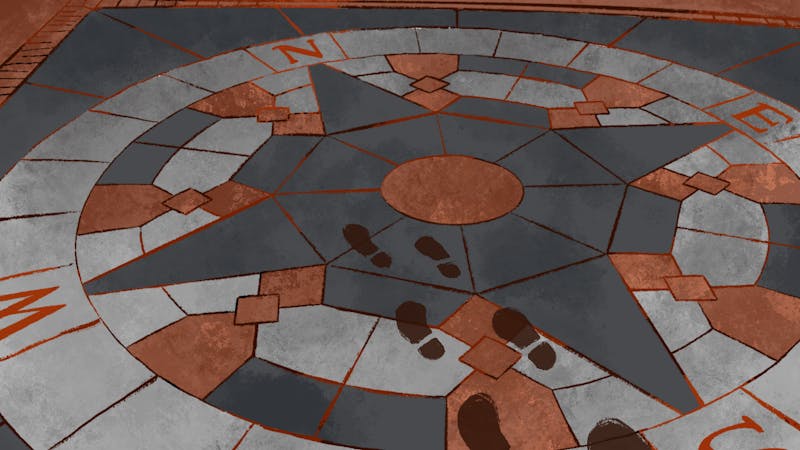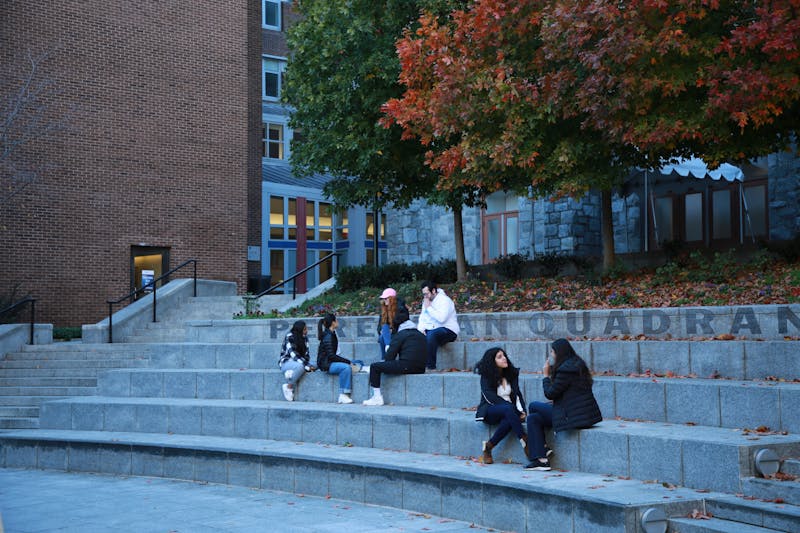
Society is comfortable making many generalizations about men. They are less likely to enroll in college than their female counterparts. They are experiencing higher levels of depression and loneliness than ever before. They are becoming more aligned with the political far right. The list goes on.
Yet, what I’ve observed more than these sweeping statistics is a deeper shift in men’s ability to experience community and express themselves. This shift is largely driven by the unique convergence of longstanding gender norms and the dynamics of a world increasingly reliant on social media for connection.
In one study, nearly half of young men found their online lives more engaging than their real world experiences. Furthermore, 45% of the youngest men express trust in online figures known for promoting anger, racism, misogyny, and anti-democratic sentiments, with more placing their trust in Andrew Tate than in President Joe Biden.
Although these trends raise critical concerns about the stability of our democracy and the well-being of young men, there’s still something more important and urgent lying beneath the surface.
Beyond concerns about extremist ideology, social media negatively affects both men and women in similar ways: amplifying insecurities and heightening our need for external validation. Last semester, I took a course on social media and the self, driven by my interest in these issues. One glaring absence in our class materials was literature written by men, specifically about how body image and beauty standards (such as gym culture, for example) could affect them. My professor explained that it wasn’t because the male perspective wasn’t important, but simply because the voice doesn’t exist. For this literature to be written, a male author would need to be vulnerable enough to discuss how it affects them, and many others would need to share their stories to create any broad conclusions.
This omission speaks directly to the root of many of the sociological trends we observe today. Men are afraid to be vulnerable — and it’s hurting everyone.
In an interview, a fellow male student, who requested anonymity due to the sensitive nature of the topic, shared insights into how men perceive vulnerability. A Wharton senior and fraternity member, he candidly described the challenges of opening up with male peers.
“It’s not that I don’t have people I can talk to,” he explained. “It’s that admitting you need help feels like admitting defeat.”
He elaborated further: “Honestly, I’d rather go to a girl about any problem related to mental health. Guys just don’t really talk about that stuff.” When asked why, he attributed it to societal norms: “It’s just not normalized. Vulnerability is seen as feminine.”
During our conversation, he also admitted there had been a time during his undergraduate career when he should have sought help — whether from friends or a professional — but refrained. The stigma surrounding vulnerability among men, he suggested, played a role in his decision to stay silent.
His feelings are also reflected in survey responses: 40% of men in one United Kingdom study suggested they’ve never spoken to anyone about their mental health for the following reasons:
- “I’ve learnt to deal with it” (40%)
- “I don’t wish to be a burden to anyone” (36%)
- “I’m too embarrassed” (29%)
- “There’s negative stigma around this type of thing” (20%)
- “I don’t want to admit I need support” (17%)
- “I don’t want to appear weak” (16%)
- “I have no-one to talk to” (14%)
Please note that no one said it’s because they don’t want to talk about it; rather, there are deeper reasons preventing them from doing so.
We also discussed the recent studies highlighting concerning trends among men: lower academic performance, fewer professional opportunities, and declining social success. When I asked him if he thought vulnerability — or the lack thereof — was at the root of these issues, he offered a nuanced perspective.
He said society teaches boys that being a “good man” means being tall, rich, successful, masculine, and handsome. Yet, these expectations often shift overnight, leaving young men confused and disoriented. For example, in high school, athletic success is often rewarded — by peers, teachers, and even parents — over academic achievement. “Trying hard in school is seen as lame,” he said, “and it’s seen as way cooler to be good at sports. That’s what gets rewarded.”
Then, he explained, the dynamic shifts again during college: Academic effort is taken somewhat more seriously, but partying, fraternity life, and drinking often take precedence. But by the time men graduate, the world abruptly changes its expectations. They’re scolded for not trying harder in school, criticized for not securing a high-paying job, and pressured to earn enough money to support themselves, a partner, and a future family.
When I asked what he thought it meant to be a good man, his answer was striking. He didn’t list a single quality from the societal script he had just described. Instead, he said the most important thing was the ability to take care of yourself and those in your circle. I found this powerful because it highlighted a glaring contradiction: What are we teaching men and boys when we reward behaviors we later scold? How can we expect emotional availability and maturity when we create a culture that punishes vulnerability at every stage?
It’s a paradox that extends beyond men. Women, too, reinforce these norms. I’ve seen women admonish men for being emotionally unavailable, labeling them cold or distant. Yet, in the same breath, I’ve seen women mock men for crying or expressing emotions, calling them “gay” for doing exactly what society claims it wants from them. It’s extreme cognitive dissonance, and this contradiction creates a deep confusion about how men should navigate their emotions, leading many to suppress them altogether to avoid judgment. Ironically, this reinforces the very stereotypes that harm them.
I have been speaking of mental health very broadly in the sense of men finding community and understanding their place within a world where the very foundation of gender norms is constantly being questioned. But I also want to speak of it viscerally, as men are dying because of this. Most of the people I know who have died by suicide were men. In high school, I lost a childhood friend who was only in the eighth grade to suicide. He was an amazing friend. He was kind, a fantastic soccer player, artistic, and a good student. It’s not uncommon that those who are struggling don’t disclose their pain. But it’s a different experience to personally experience that. I had no idea he was struggling, and I still feel the guilt of not being there for him.
My friends and I tried to memorialize him with a plaque on his school locker, but the high school viewed this as a glorification of suicide. We didn’t get the memorial we wanted, but we got a tree on campus that we revisit every year on the date of his death to honor his life.
This was Dec. 18, 2017. In the years since, while suicide awareness has become more commonplace, suicide has only increased among men from ages 15-24. Men are four times more likely to die by suicide than women. Women attempt suicide at higher rates, but men are far more likely to succeed. This points back to the discussion of vulnerability: Awareness is a very small factor in the ecosystem of suicide prevention. We must change the circumstances that cause young men to believe that suicide is their only choice.
In writing this, I’ve intentionally avoided the terms “toxic masculinity” and “patriarchy” because of the way they’ve become politicized and charged. This is not a political issue; it’s a human one. Viewing this issue through a political lens disservices the very nature of it. It’s one that cannot be solved through policy alone; it requires a shift in our social reflexes and attitudes.
Women, the next time you see a man being vulnerable or emotional, please don’t mock him. Men, the next time you feel alone, hopeless, or lost, please reach out to your friends — especially your male friends. This vulnerability is frightening beyond what I could imagine, but the truth is that many of you are experiencing these feelings in isolation. Talking about it doesn’t have to mean wallowing in those feelings or admitting defeat; it means building deeper connections with those around you. It means breaking the silence and transforming how we relate to one another.
We all have a part to play in making emotional openness the norm, not the exception. If we want to prevent further losses, we must take deliberate action — not just to talk about awareness but to foster a world where vulnerability is seen as a strength, not a weakness. The truth is that this article will do little to nothing to change cultural attitudes, but if it makes any men reading it feel any less alone, then it was entirely worth it.
ALLISON SANTA-CRUZ is a College senior studying communication from Jackson, Miss. Her email address is allisant@sas.upenn.edu.
The Daily Pennsylvanian is an independent, student-run newspaper. Please consider making a donation to support the coverage that shapes the University. Your generosity ensures a future of strong journalism at Penn.
Donate











